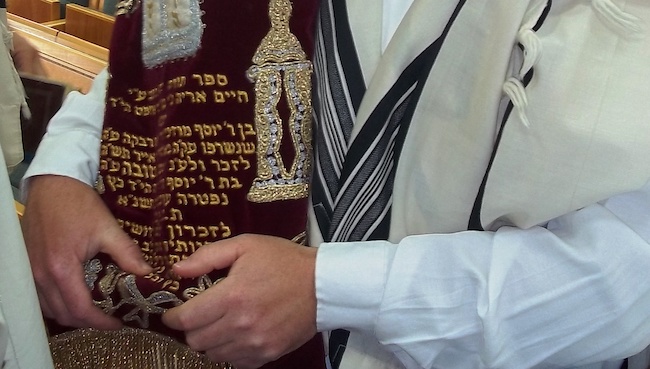And I will establish my covenant with you; never again will all flesh be cut off by the waters of the flood. There will never again be a flood to destroy the earth. (Bereshith 9:11)
The previous essay mentioned that one must be extremely wary of inadvertently taking a vow, for if one intends to do so even the words “yes” and “no” can be considered oaths. This prohibition applies regardless of which language one spoke in and even if one does not explicitly mention one of God’s names.(1) However, if one does mention a Divine name, the words are considered an oath even if one does not say that they are an oath. Therefore one should not say, “B’emeth (in truth) this is so,” for Emeth is one of the names of God.(2)
Why is an oath viewed with such awe? In essence, when someone makes oath, he is comparing the accuracy of the statement he has made to the truth of God’s existence. Therefore if a person violates his oath it is as if he has denied God’s very existence. For this reason, our Sages say that at Sinai, when God pronounced the prohibition of swearing falsely, the entire universe trembled.(3)
A man once left some money with a widow. The woman placed the coins in the flour jar, but soon forgot that she had done so. When she baked bread with that flour, the money that she was given was accidentally mixed into the dough. A poor person came to her door, and she gave him the bread, unaware that she had also given him the coins.
The owner of the coins came back to the widow and asked for his money. Anxious to affirm her honesty, she exclaimed, “May deadly poison affect the children of the woman who benefited from those coins.” Shortly after she made her exclamation one of her children died. Concerning this incident the Sages said, “If this is the punishment for one who makes a true oath, (for in truth she did not receive direct benefit from the coins), imagine what the punishment for a false oath is.”(4)
1. Shulchan Aruch Yoreh De’ah 237:1.
2. Sefer HaYirah of Rabbeinu Yonah, p. 217; Reishith Chochmah, Kedushah Ch. 14; Teshuvoth V’Hanhagoth 1:525.
3. Shavuoth 39a.
4. Gittin 35a.
Text Copyright © 2006 by Rabbi Daniel Travis and Torah.org


